Do you have a skinny ferret?
What is the reason behind it?
Ferrets are small animals and looking at a skinny ferret can easily wake up the concern in a person. So, with that in mind, today’s post is all about them. What makes a ferret skinny, is it a cause for concern or not? What can you do to fatten up your pet? Let’s take a look!
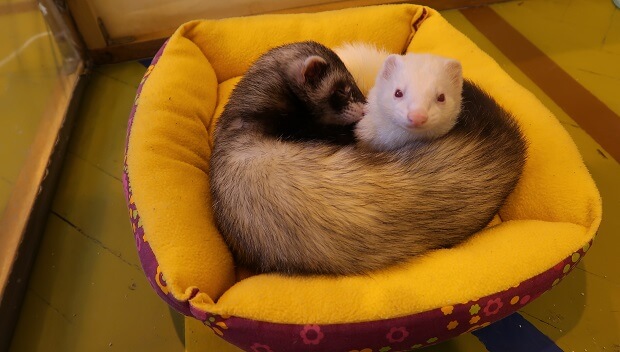
TABLE OF CONTENTS
How Can You Tell If Your Ferret Is Underweight?
Just like humans, ferrets come in different shapes and sizes. That means if your ferret is small and thin, it is not necessarily underweight. It is important to know when a ferret is underweight and when he is simply thin by nature. You can do something to help you determine if your ferret is too skinny or simply has a small built. Forget about the look and focus on what you can feel.
Feel Your Ferret
Grab your ferret and feel his muscles and bones. Feel his spine, ribs, and legs. Make sure to check out his hips too. If you can feel the bones under the fur without fat, then you have to fatten him up. If you feel the muscles but they are small, it could be his built because not every ferret is big or small. They come in different body shapes just like us.
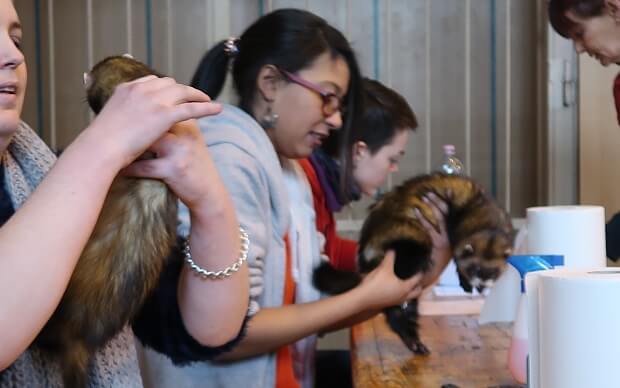
Make sure you feel his entire body and think about what you feel under your touch. You shouldn’t feel bones sticking out beneath his fur, you should be able to pinch some fat too. If you can feel only bones, then you have to fatten up your fuzzy.
Let Your Ferret Hang
Grab your ferret under his front legs and let it hang. If the body becomes a shape of an hourglass, then your ferret is too skinny. Skinny ferrets are very thin in the tummy area when you let them hang. You can easily see the difference between the ribs, the tummy, and the hips.
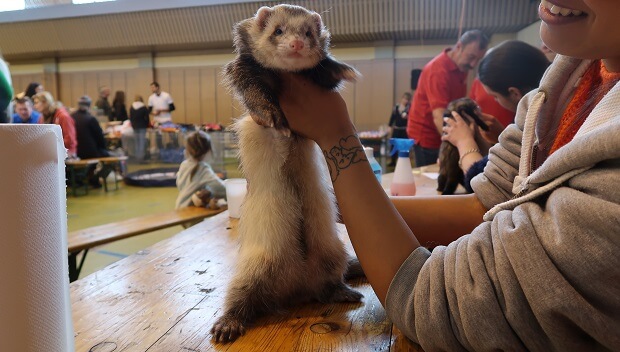
A ferret with a good weight doesn’t have an hourglass shape, that ferret is almost the same around the ribs, the tummy, and the legs. An overweight ferret will have an oval shape, meaning he will be wider in the tummy area than he is around the ribs and hips.
Monitor Your Ferret
There is one other thing you can focus on. Monitor your ferret and determine his behavior. Is it the same as before? Has something changed? If your ferret is as happy and energetic as other ferrets, then it can mean it is simply a small ferret.
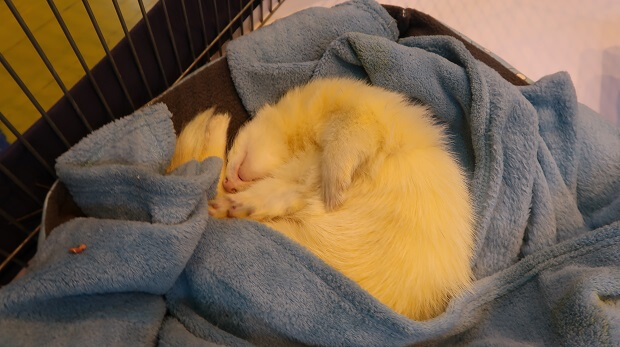
Underweight ferrets don’t have much energy and aren’t playful since they don’t have the strength to run around, jump and go into trouble. So, if your small ferret is slower or sleepier than before, there is a chance you have a skinny ferret that needs to gain some weight and energy.
Is Your Ferret Skinny By Nature?
So, how can you know if you have a skinny, but healthy ferret? You should think about his body type. There are three body types in ferrets, the bulldog ferret, the greyhound ferret, and the whippet ferret. Bulldog ferrets are the biggest and the bulkiest while the whippet ferrets are the smallest and the thinnest.
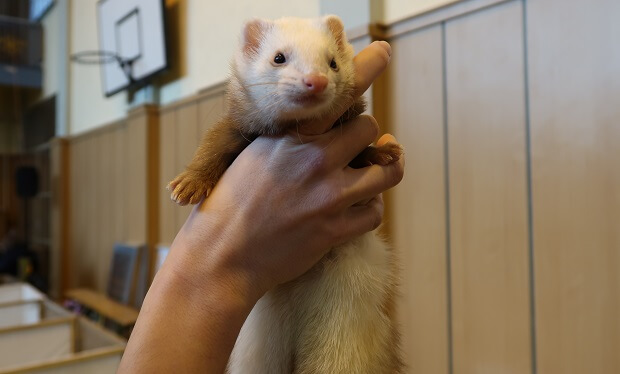
Whippet ferrets are thin, small, and highly energetic. They look fragile and some people will assume they are underweight, but they are simply very small ferrets. When you hold a whippet ferret, you can feel small muscles, they aren’t all bone and skin. If you want to learn more about them, read my post about ferret body types.
Why Is Your Ferret Underweight?
If you determined that your ferret isn’t skinny by nature, but underweight, then you can ask yourself “Why is my ferret is skinny and weak?”. There are a couple of reasons for a drop in weight, some of them are occasional, while others can be a symptom of something much more serious.
Seasonal Weight Change
Ferrets change their fur twice a year, before summer and before winter. But, that is not the only physical change their body does. They also have a different weight during those two seasons. So, if you notice that your ferret is slimmer during summer than he is during winter, you can relax. Ferrets can lose up to 40% of their winter weight during summer so they can look like a different ferret in those two seasons.
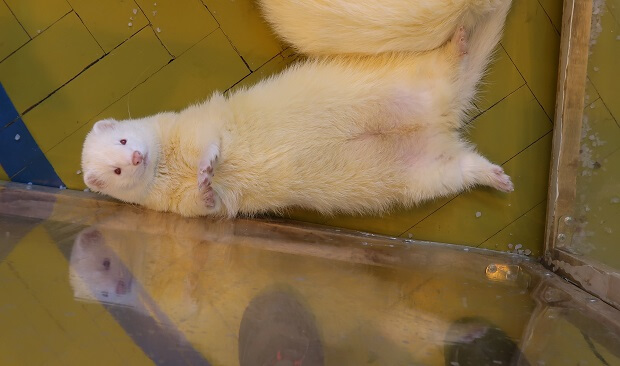
Keep in mind that some ferrets can switch those two seasons. That means that some ferrets can lose weight in the winter and gain some during summer. It is not that common but it can change and the same thing can happen with the seasonal fur changing. Most of the time those two are connected, meaning that the weight loss comes with summer fur. So, if you notice that his weight has some connection to the season, don’t worry. But, monitor him so you can be sure there isn’t any other reason.
Weight Loss From Poor Diet
Ferrets require a diet high in proteins and fat. If a ferret has a low-quality diet, the will be skinny, weak and he will have a dry coat. If a ferret eats food low in proteins, he will drop weight because his body can’t process other things like fibers or sugar. Feeding a ferret a food rich in fibers is practically meaning starving a ferret. This type of weight loss you can easily recognize because every part of the ferret body is in bad shape. From his energy levels to his weight and coat quality.
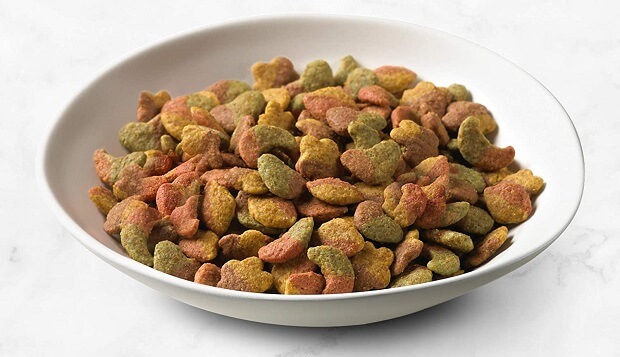
If you rescue a ferret or you buy one, make sure you feed him with high-quality food. The best nutrition for a ferret is raw meat, but if you can’t provide him with that type of diet, you can use kibble. The tricky part is to determine what kibble is the best one for ferrets. A good thing is that there are a few guidelines you can use when picking the diet. For example, kibble is rich in proteins and fat, but poor in fibers. If you want to know how to pick the best kibble, read my post about kibbles for ferrets.
Weight Loss Connected To A Disease
There are a few diseases that your ferrets can catch and those can cause weight loss. If your ferret has diarrhea or he vomits a lot, you can be sure that your ferret will experience weight loss. Those symptoms usually come with energy loss and lethargy. The problem with diarrhea and vomit is that they can be symptoms of numerous conditions. The best thing you can do in that situation is to go to the vet so he can determine the cause of it.
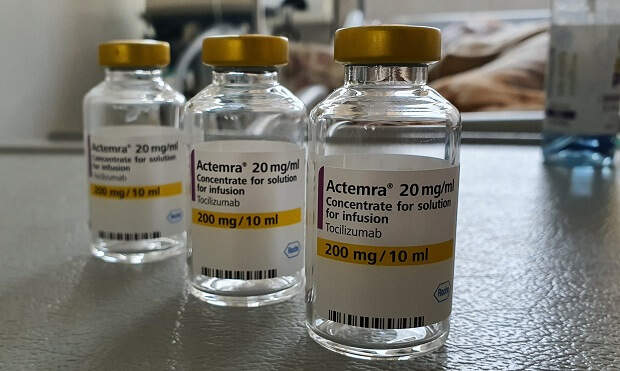
If your ferret vomits or has diarrhea, make sure you give him enough fluids. Ferrets can easily be dehydrated which can cause some serious complications, including death. So, don’t waste any time and visit the veterinarian so you can determine the cause and start with the treatment for quick recovery.
Insulinoma Weight Loss
Insulinoma is a very common disease in ferrets. It manifests as cancerous tumors on the pancreas and it causes low glucose. One of the first signs of insulinoma is weight loss because it causes ferrets to lose fat in the body. Besides that, a ferret experiences a drop in energy so he becomes lethargic. If you doubt that this is the case, you can check your ferret’s glucose level in blood with blood glucose monitors for humans.
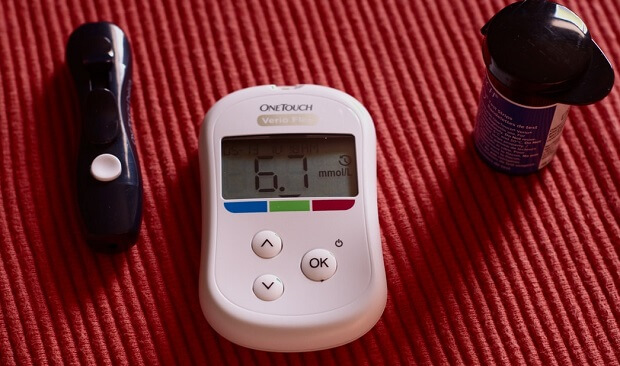
Check the blood glucose once a year, then twice, then every couple of months, depending on the age and state of the ferret. This illness can be very serious but if you catch it in time, your ferret can live with it for years. That is why it is a good idea to go with your ferret to the vet every year for a checkup. The vet will do glucose tests among others and he can help you catch insulinoma in the early stages.
Contact Your Veterinarian
It doesn’t matter what the reason for a weight loss is, if you think that you have a skinny ferret, go to the vet and let him determine if he is underweight or not. After a checkup, your vet will take into consideration the information you give him, the result of a checkup, and his experience to give you the right answer to that question. That is why it is very important not to withhold any information from the vet.
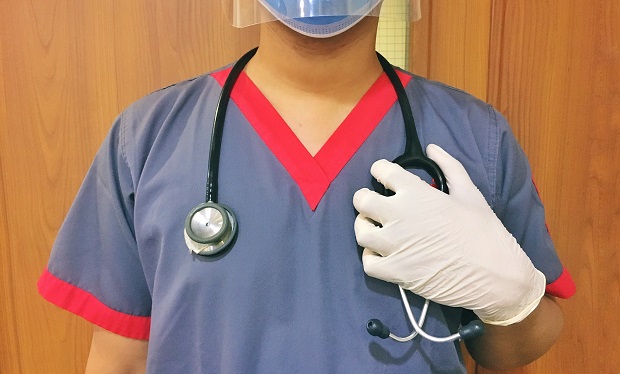
There is a thin line between a healthy but skinny ferret, a small weight loss, and a weight loss from serious disease. Make sure you cover all the bases before you start with the treatment so you can get the best and the quickest recovery for your ferret.
How To Make Your Ferret Gain Weight?
Skinny ferret is a cute ferret, but if he needs to gain weight, you have to do everything you can to make it happen. Most of the tricks to gain weight for a ferret has to do with calories so make sure you know how and what you can or can’t do.
Find The Source Of Weight Loss
The first thing you need to do is to determine the source of his weight loss. When you know the reason behind it you can make your ferret happy with a normal weight. Don’t forget to ask a veterinarian for an opinion because too much or too small a weight is not good for a healthy ferret.
Feed Your Ferret More
I know that this sounds pretty logical so it is the best way to start. Ferrets usually eat 5-10% of their body weight in a day. But, it is not the same if they eat that amount in a high-quality diet or in the one that is not good for their body. So, choose the best kibble or a raw meat diet and use that 5-10% rule for their food intake. The food should be rich in proteins and fat and avoid fibers and sugar at all costs.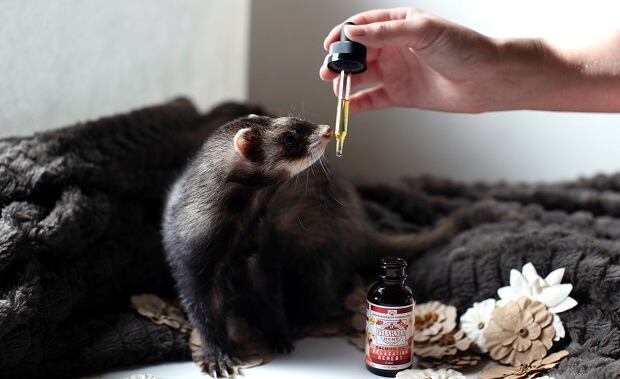
Since you want to fatten up your ferret, make sure you are closer to the 10% than you are at the 5%. Give your ferret more food and treats. You can use salmon paste or salmon oil for treats, you can even give your ferret raw egg or dried meat. Simply, make sure you don’t overdo them with treats, they are called treats for a reason.
Reduce The Activity
Ferrets that are too skinny usually aren’t that active. But, with time as their weight grows, they will have more energy too. It is a good idea to keep them under control so you can prevent them from spending too many calories. If you want to play with your ferret, play something that doesn’t require running around and jumping from one place to the other. You can do that by leaving the ferret in the cage longer than usual.
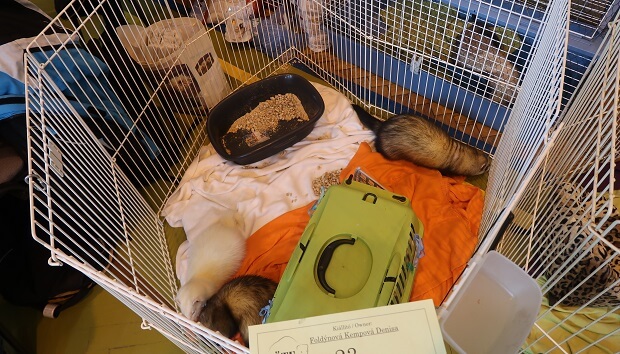
But, you have to be careful with that because you don’t want a frustrated ferret so make sure he has enough time outside the cage. Another thing you can do is use the playpen. A good playpen will lower the space your ferret wants to avoid. That results in less running and spending energy which eventually leads to fewer calories spent.
Conclusion
In the end, if your skinny ferret is a healthy ferret, I wouldn’t worry about gaining extra weight. As long as the ferret is happy, energetic, and healthy, the weight is just a number. Remember to use only food made for them to keep them healthy at all times. Also, visit a vet every year so you can be 100% sure you have a healthy fuzzy in your home. Do you have some inputs about skinny ferrets? Share your opinions with us in the comments below!

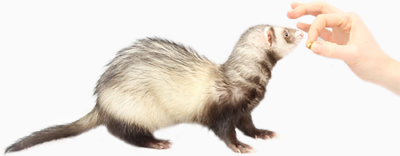
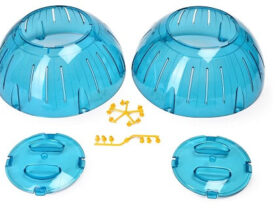

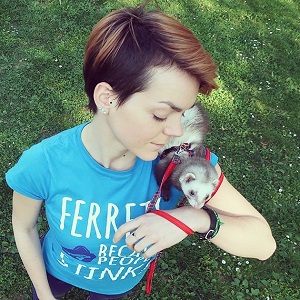

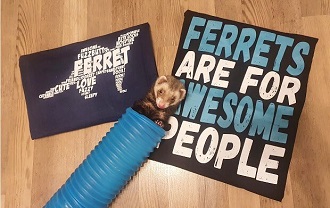
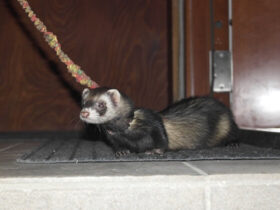




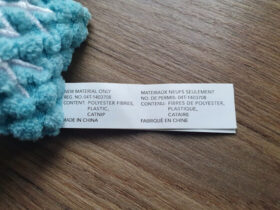
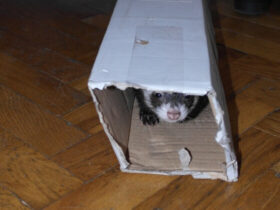
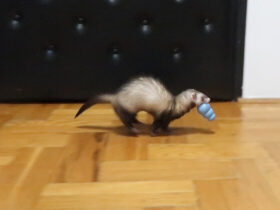

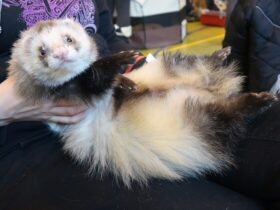
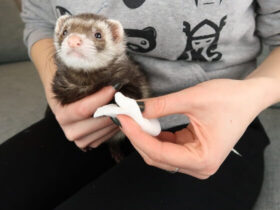

Leave a Reply